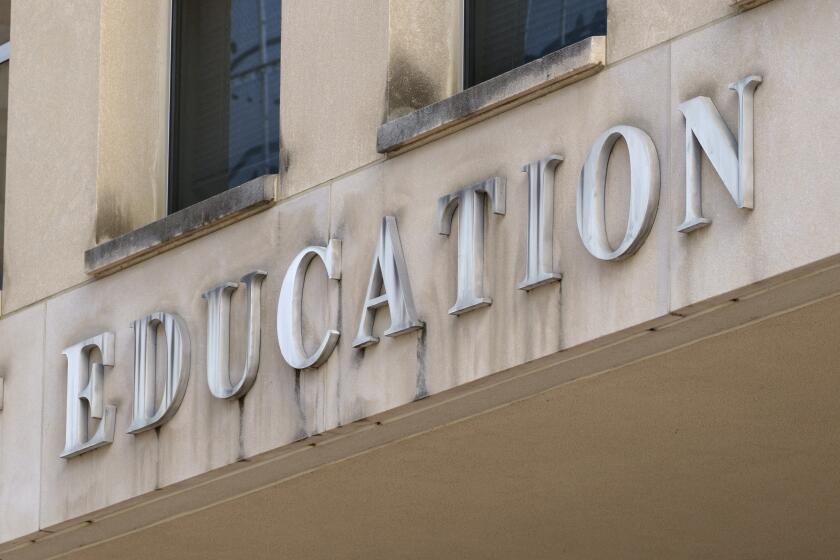
Trump's Assault on Public Education
Donald Trump has made it clear that public education is a target. While the recent release of billions in funding for the upcoming school year might suggest otherwise, this move appears to be more about optics than genuine support. Education Secretary Linda McMahon claimed that the government had thoroughly reviewed all programs to ensure they met the president’s standards. However, the reality is far more complex.
The White House faced overwhelming backlash from both political parties, educators, parents, and school administrators after deciding to withhold funding. In response, 24 states filed lawsuits against the administration for failing to honor already allocated education funds. The temporary relief provided by the new funding is likely just a pause in what could be a larger effort to dismantle the Department of Education (DOE) altogether.
Shuttering the DOE was a key promise during Trump’s campaign. As a result, approximately 2,000 staff members have been fired or resigned under pressure — half of the agency’s workforce. On July 14, the Supreme Court lifted an injunction against these firings, allowing the administration to proceed with its plan, even as legal challenges continue. This decision effectively gives Trump the power to dissolve the department through executive action, despite potential future rulings that may challenge this authority.
Justice Sonia Sotomayor, joined by Justices Elena Kagan and Ketanji Brown Jackson, criticized the ruling, warning of “untold harm” that would follow. She highlighted the risks of delayed educational opportunities, discrimination, and civil rights violations without federal support. These concerns underscore the broader implications of dismantling the DOE.
McMahon has emphasized the agency’s “final mission”: ending federal funding for school districts that fail to eliminate diversity, equity, and inclusion (DEI) initiatives. These efforts, which Trump refers to as “critical race theory and transgender insanity,” are seen as threats to his vision of education. The stakes are high, as nearly $30 billion in aid is at risk.
This approach directly contradicts a long-standing bipartisan agreement rooted in laws like the 1965 Elementary and Secondary Education Act and the 2015 Every Student Succeeds Act. These policies focus on closing the achievement gap between privileged students and those from disadvantaged backgrounds. Federal funding supports essential programs such as smaller class sizes, after-school initiatives, and tutoring services. Research shows that Title 1 funding has contributed to improved performance among disadvantaged students on the National Assessment of Educational Progress (NAEP), the country’s primary measure of student achievement.
Innovative programs like the Harlem Children’s Zone preschool, charter schools, and Tutoring Chicago have demonstrated remarkable success. However, these programs face an uncertain future if DEI initiatives are eliminated. Support for students with disabilities, including the requirement for “free and appropriate education,” could also vanish, leading to devastating consequences for vulnerable students.
McMahon argues that focusing solely on “meaningful learning” will improve academic outcomes, but this perspective ignores the proven benefits of DEI programs. By reducing discrimination and fostering inclusivity, these initiatives help create environments where students feel supported and valued. Removing them risks reversing years of progress in addressing the achievement gap.
Trump’s agenda extends beyond DEI. His proposed One Big Beautiful Bill Act includes a nationwide school voucher program, funded by a 100% tax deduction for donations up to $1,700. This initiative could cost up to $50 billion annually, with no cap or expiration date. Vouchers threaten to undermine public schools by diverting federal funds and creating a system where private institutions can exclude students based on their background or needs.
Studies from Louisiana, D.C., and Indiana show that voucher programs often lead to worse academic outcomes, particularly in math. Michigan State professor Joshua Cowen found that voucher plans have caused worse results than the pandemic itself. Critics argue that vouchers offer a simplistic solution to complex issues like segregation and school safety, while harming vulnerable students.
Despite these challenges, defenders of public education are pushing back. Twenty states have filed lawsuits challenging the DOE’s demand to eliminate DEI programs. Massachusetts Attorney General Andrea Joy Campbell called the administration’s actions “unlawful and harmful.” While the White House may face legal setbacks, the process is slow, and damage could occur before final decisions are reached.
Congress must step in to protect public education. It is time for lawmakers to uphold longstanding legislation that supports compensatory and special education programs. The rule of law and the future of public education depend on it.